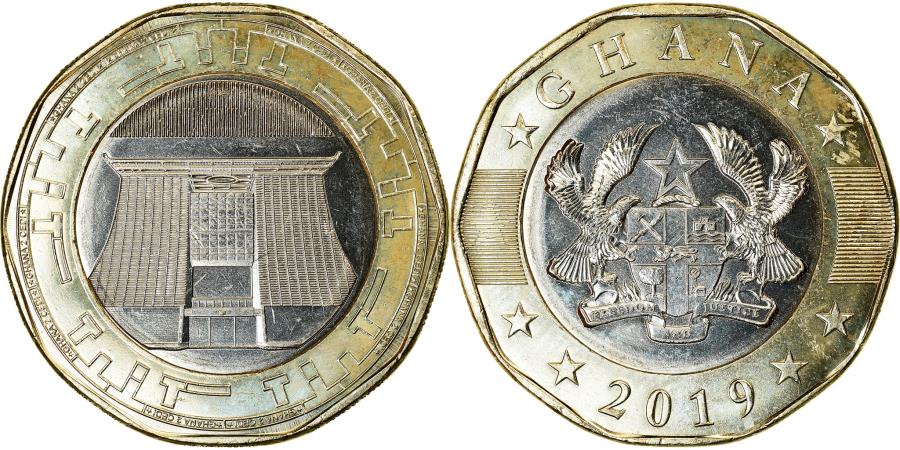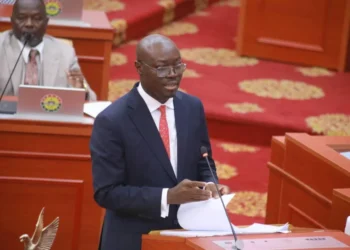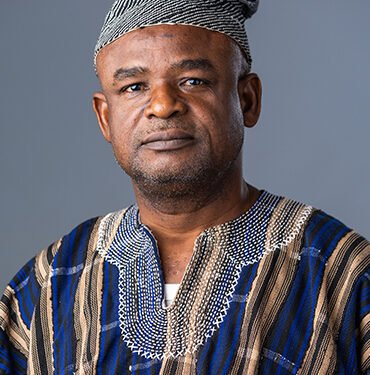A Research Fellow at the Centre for Social Policy Studies (CSPS) at the University of Ghana, Dr. Kwadwo Opoku has dismissed claims that the Bank of Ghana’s decision to phase out the GH¢1 and GH¢2 notes and replace them with their respective coin equivalents will result in price hikes in the country.
According to him, the policy will not affect prices since the Bank of Ghana (BoG) is not entirely phasing out these lower denominations. He explained that the Central Bank does a lot of research and monitoring that assesses the implications of such policies on the broader;economy and it’s only when the benefits outweigh the costs that it goes ahead to initiate any such measures.
“I think the policy of just taking the notes out of the system so that the coins remain;is in the right direction so that they reduce their costs; because for the coin, it’s difficult for it to get worn out easily. So, I believe in the policy. For prices, I don’t think there is any way that this policy is going to increase prices.
“I think it’s a good intervention to reduce cost and I know that they;have done their calculations and they know how viable it is”.
Dr. Opoku
On Monday, September 27, 2021, the Governor of the Bank of Ghana, Dr. Ernest Addison, said his outfit is considering phasing out the GH¢1 and GH¢2 notes and;replace them by their coin equivalents. The Governor cited poor handling of the notes that often results in more expenses being incurred by;the state to replace them as a reason. However, there have been mixed reactions from Ghanaians since the announcement, sparking debates on the possible;implications of this move by the Central Bank on the economy.

The policy to benefit Ghanaians
However, the Former Economist at the BoG believes the move is in the interest of all;Ghanaians, especially taxpayers whose monies continue to be used to print and replace the notes.
“It’s just something that should be done; it’s just an economic something that everybody must understand and make do with it. So, whatever happens, it gets back to us as taxpayers because;remember, when they make profit, it gets back to us as dividends. But now, if they continue to spend the money that they have on printing, it cannot give government dividends. So, if they are trying to reduce cost, it’s in the interest of all of us”.
Dr. Opoku
Dr. Opoku told The Vaultz News that the only issue will be the readiness of the people to accept the coins. But, even though he indicated that he has not done any research, he pointed out “at least with;my little knowledge of the market, it’s already acceptable”.

High frequency of circulation of lower denominations
He emphasized that the only reason why the Bank of Ghana is doing this is because the turnover rates of the;GH¢1 and GH¢2 notes are very high since people exchange them frequently and they get easily worn out. He stated that the Central Bank has a threshold and whenever the notes have deteriorated;to a certain level, “they don’t allow them to come out again; they change them”.
“The public is probably not aware of this but the Bank spends money to replace them [the Bank notes]. So, whenever they get to that level, they [Central Bank] destroyed them because they are not worthy to come out to the public”.
Dr. Opoku
Dr. Opoku further averred that the Bank of Ghana needs money to print these notes at a very high cost. He argued that even though the cost of printing a GH¢1 note may not be as high as that;of printing a GH¢100 note or a GH¢200 note, it’s still high because all of them require;paper and other security features. “If they [BoG] continue to spend money to replace it, it’s not a viable venture”, he said, emphasizing his support for the Central Bank’s decision to phase out the notes.

Need to explore other avenues
One other school of thought is that instead of the central Bank replacing the notes with the coins because the notes;easily deteriorate, it could have considered changing the materials it used for printing the notes. For instance, BoG could consider using a paper that may not easily wear out. However, Dr. Opoku disagrees with this, arguing that irrespective of the quality of paper used, the;notes will still wear out because they exchange hands frequently.

“The notes, whatever quality that we use, well, you can say education and those things so that people will use it well but those are not the problem. For example, the GH¢200 note, the number of times it changes hand; the frequency is very low as compared to GH¢1 or GH¢2. So, it’s not an issue of paper or what have you, I believe they use the quality paper that you can get. It doesn’t matter the paper that they use, once it keeps on changing hands, the rate at which it will deteriorate is very high.
“So, it will get to them and they will change it. They have records of all those things and they monitor. They look at the face value of the money and how much they spend to print it. I believe they have done the analyses and probably it’s too high and so it has to get out. So, it’s not about quality or anything, I think it’s more about the cost related to it in comparison with the face value of that amount. Anywhere in the world, once the value is very small, you will have to maintain it in the coin form which has that durability. So, everywhere coins are interchanged and not only in Ghana”.
Dr. Opoku
General attitudes towards the use of coins
Generally, there is the notion that people who use coins are either poor or not having enough money on them. Aside this tag, some churches now encourage their members to use notes instead of coins during offering. As such, some people have raised concerns that the phasing out of the two lower denotation notes, may put undue pressure on people to use higher denominations, especially during offertory at church.

Commenting on this, Dr. Opoku indicated that, of course it may be true that people will come under such pressure but “that on its own is not going to increase prices”. However, to reduce this pressure, he called for more public education, especially in the various places of worship in the country.
“Yes, if it puts pressure on the people to use it; it’s all about education. Even in the Bible, the woman who gave all she had, I know it was a coin and God accepted it. So, we need to educate our members; in fact, it’s not about the amount that you give that makes God happy, it’s not about whether it’s a coin or it’s a note. We need to accept the fact that it costs to print, and they have assessed the coins and the notes and realized that it’s not a good venture”.
Dr. Opoku
Need for education
Dr. Opoku also noted that people may have different perceptions about the use of coins which we cannot avoid. As such, he called for measures that would be geared towards changing the behavior of the citizens to accept and use the coins.
“So, we need to educate them on procedures that they need to collect these coins without having any problems with it. Some churches use a material bag so that it will not make noise and other things. It’s more about behavioral changes. If you know that the policy is good, you don’t say that the behavior is bad so you don’t bring the policy, but rather, you bring the policy and bring other measures that will change the behavior. If their behavior is wrong towards the use of coins, we need to have interventions in place that will change their behavior and that’s the way to go”.
Dr. Opoku
The Short-term Consultant at the World Bank therefore, urged Ghanaians to accept the use of the coins because he believes it will not pose any additional security threats to the holders. He stated that instead of carrying huge quantities of coins with you, you can convert it to the higher denominations or keep it in other electronic forms to ensure the safety of your money.
Cost of printing the notes
The Central Bank continues to incur huge costs to print and maintain the notes. The BoG disclosed that it spent GH¢337.5 million on the printing of currency notes in 2020 compared to GH¢306.2 million in 2019, according to its 2020 annual report. Therefore, the recent decision to phase out the GH¢1 and GH¢2 notes is part of efforts to reduce the cost of issuing and maintaining the currency in the country.

According to the report, the values of the GH ¢2 and GH ¢1 notes in circulation in 2020 were GH ¢88.9 million and GH ¢179 million respectively. For the coins, GH¢19.8 million of the GH¢2 was in circulation in 2020, as against GH¢31.7 million of the GH¢1.
READ ALSO: President Assures the Various Security Agencies of Adequate Resourcing























